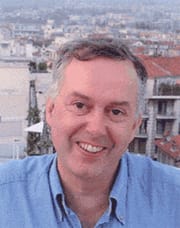The first rays of the summer sun have launched the new tourist season on the French Riviera, and in a few weeks, the first wave of summer visitors will arrive on the Côte d’Azur.
Nice Première met with Mr. Michel Tschann, President of the Azurean Hoteliers Union, to get an overview of the upcoming tourist season.
Nice Première: Michel Tschann, how is the summer season looking in Nice?
Michel Tschann: So far so good: strong activity at Acropolis and throughout the Côte d’Azur, a revival of the Italian market thanks to a decrease in thefts from vehicles, and of course, the promotional efforts made by hotels in conjunction with the Regional Tourism Committee and tourist offices give us hope for a decent season.
However, there is concern with the rise of the Euro, which could make our destination more expensive for clients outside this currency zone. On the other hand, we are very worried about 2007, which is looking quite poor today due to low activity at Acropolis.
NP: What are the new features of this hotel season in Nice?
MT: No new hotels are being built, but there are still many renovations and arrangements being made to meet the demands of increasingly discerning customers. For example, at the Splendid, we are going to open a Day Spa in December.
NP: Tramway construction and tourism don’t seem to mix well. What’s your take on this?
MT: The tramway will be a great asset for the city, especially for Acropolis, in the near future. It is true that the construction works cause a lot of difficulties for some of our members, particularly in terms of hotel access. We are trying, in conjunction with the city hall, to remedy the most severe inconveniences, but it’s not easy given the extent of the works.
The works are there, we must accept them, but we must ensure that the affected hotels are better signposted and directed.
NP: What type of clientele is expected on the Côte d’Azur?
MT: One of the strengths of the Coast is precisely its universality in terms of ages and nationalities. In the 19th century, it was the first “global village.” Even today, all nationalities meet here, although our British friends remain dominant and here, as always, “Britannia rules the waves.”
It would be very regrettable if one nationality were too dominant, as pleasant as it may be, because it would detract from the charm of our Côte d’Azur.
We aim to be present in all major markets, including new ones like the new flight from Atlanta to Nice. There are still very weak markets where we need to be present, notably Kazakhstan and Brazil.
NP: You are one of the pillars of the Nice Côte d’Azur Hoteliers Union. What is the role of your union?
MT: Our main role is to provide support to our members, many of whom are small units: the regulations are complicated in terms of social or legal matters, and our primary role is to be able to answer these questions thanks to our two permanent staff.
And of course, we must try to represent the profession to a multitude of organizations: CRT, tourist office, development councils for urban areas, chambers of commerce, joint bodies, UPE… the list is very long and it takes a lot of time.
NP: The CANCA has released aid for traders. Are Nice hoteliers concerned?
MT: To my knowledge, no application has been filed in this regard. Rather than compensation, we are looking for signage and cleanliness.
NP: According to you, what are the keys to a successful season?
MT: A harmonious mix of nationalities and ages, leisure and business/congress clientele, good weather, and lots of entertainment: concerts, festivals, etc.
The mix applies to the entire Coast: our customers no longer come to Nice, Antibes, or Cannes; they come to a large destination “Côte d’Azur” and then choose a “neighborhood”. The whole Coast must work together and united to make a great and beautiful season.
NP: Finally, what would be the hotel project you would like to see born in Nice?
MT: What is missing in Nice is another “large carrier,” i.e., a facility around 300 rooms, but there is no more land available for this. A few small hotels have disappeared to be transformed into apartments: it’s much more profitable than a hotel.
The only significant project is that of the Sulzer parking lot for which the City must choose an operator, but there will only be 120 to 150 rooms.


